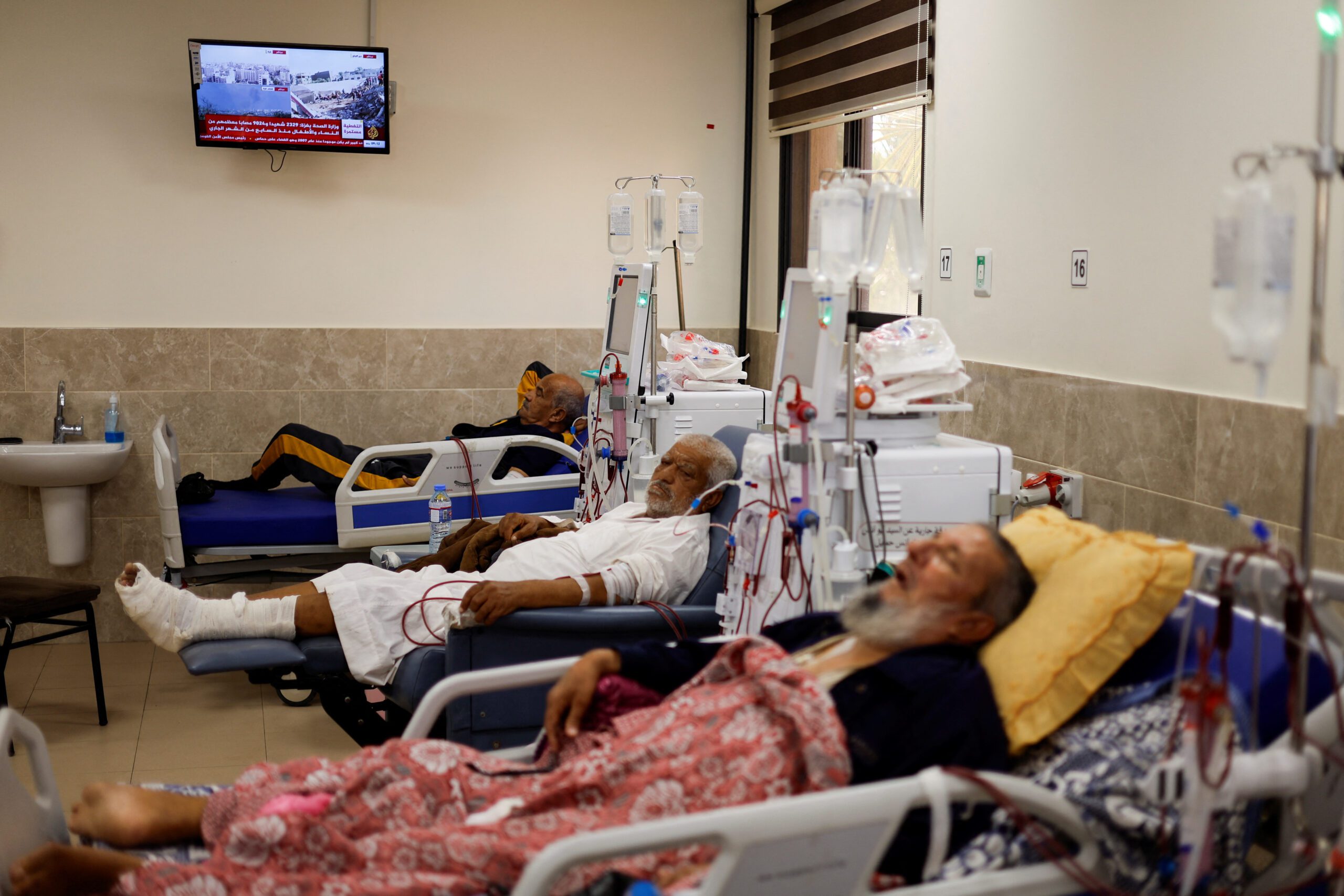On Wednesday evening, Gaza is expected to totally run out of fuel, incapacitating cars and ambulances, damaging hospitals’ ability to to treat patients, and overall plunging Gaza deeper into its Israeli-caused humanitarian crisis.
The ongoing bombing by Israeli forces on Gaza has so far destroyed around 42 percent of all housing units and has escalated significantly since October 7, killing at least 140 individuals on Monday night, with at least 5,087 (2,055 of whom are children) killed in Gaza.
More than 15,273 are injured, with many unable to obtain treatment as healthcare professionals declare the complete breakdown of the healthcare system in Gazan hospitals.
Healthcare in Gaza is particularly dismal, having reached its worst stage in history according to Ministry of Health spokesperson Ashraf al-Qudra. As of Monday, 32 health centers were out of services in Gaza, with the ones active operating on minimal equipment.
Surgeries without anesthesia and the use of clothes for bandages, vinegar for antiseptic and sewing needles for surgical ones are some of the notable components of Gazan hospital operations.
As a result of continued bombing and the total blockade on Gaza, fuel supplies have been almost completely depleted. Such supplies are necessary for electricity provision, which the lives of many rely on. The Ministry of Health in Gaza has warned that electric generators in hospitals will cease functioning within the next 48 hours due to fuel shortages.
Premature Babies and Ventilator Machines
An AP article highlights how the shortage of fuel supplies puts the lives of premature babies in Gaza at risk. These babies’ lives hinge on electricity provision as they’re unable to breathe on their own without ventilators.
The number of premature babies at “grave risk” is around 130 across six neonatal units, according to aid workers.
Operating in Complete Darkness
Ambulance workers have been using flashlights while carrying patients to recipient hospitals in addition to the many emergency mechanisms that medical crews have adopted during the last few days.
Recently, the Indonesian Hospital at the northern Gaza Strip was put out of service as a result of power outages. Such outages render essential medical equipment such as ventilators and life-saving machines useless and put the lives of patients at great risk, not to mention the fact that the damage on lighting and communication systems hamper hospital staffs’ ability to provide care in a timely and effective manner.
Disinformation: Exasperating a pressing issue
Many journalists and Western media outlets have linked the Palestinian Ministry of Health to Hamas despite the inaccuracy of such a linkage.
The staff of the Ministry of Health in Gaza are civil servants and health professionals, politically unaffiliated with any party.
The numbers and facts that the MoH in Gaza reports are always confirmed by the MoH in Ramallah, with the former having quicker access due to its location.
In all cases, the numbers of deaths and injuries reported are based on counting the bodies at the hospitals and morgues.
However, given the fact that many bodies are still estimated to be under the rubble, it is safe to assume that these numbers are underestimates of the actual number of casualties.
Missing Aid
Israeli forces have sieged Gaza and prevented humanitarian aid from coming to Palestinians through the Rafah crossing, with several Western governments complicit in such a state of affairs.
It was only on the fifteenth day of fighting (October 21) that the first aid trucks entered Gaza through the Rafah crossing. The number of such trucks however was absurdly far from the required amount, with only 20 arriving and only 17 others entering on October 22.
Prior to the Israeli occupation’s aggressions on Gaza in light of Al-Aqsa Flood, the strip’s 2.2 million residents required an average of 500 trucks of aid and fuel per day, sent by a number of organizations.
Organizations such as UNICEF used to provide health material and medicine, and a small number of Gazans with permits were allowed to seek health services in Israel.
The current siege has put an end to all of this. Aid used to enter Gaza through the Kerem Shalom crossing point, but aid organizations have had to establish a new route through Egypt’s rafah crossing. The UN Is responsible for the distribution of supplies, and an estimated 35 UNRWA colleagues have been confirmed as killed by airstrikes on the crossing.
Gazans complained that the aid they received, while being extremely insufficient to cover the needs of residents, was disproportionate in the needs it targetted.
With Israeli bombing targeting civilian structures, hospitals and medical crews and foreign governments continuing to support occupation forces, the healthcare of Palestinians remains in atrocious conditions – and it doesn’t seem like Israel intends to halt its aggressions any time soon.
Israeli officials have continuously said that the aggressions on Gaza may take weeks or months, as they set out to “eliminate Hamas entirely.” Organizations and politicians worldwide, including the UN Secretary General, have condemned Israel’s crimes and have called for the establishment of a permanent humanitarian corridor. Israel’s response has been to remove ambassadors, call back diplomats and politicians, and negatively respond to anyone criticizing the occupation’s crimes in Gaza.
Following comments by the UN Secretary General, the Israeli ambassador to the UN has responded by saying that the occupation “will refuse to issue visas to UN representatives.” The ambassador added that “the time has come to teach them a lesson.”


